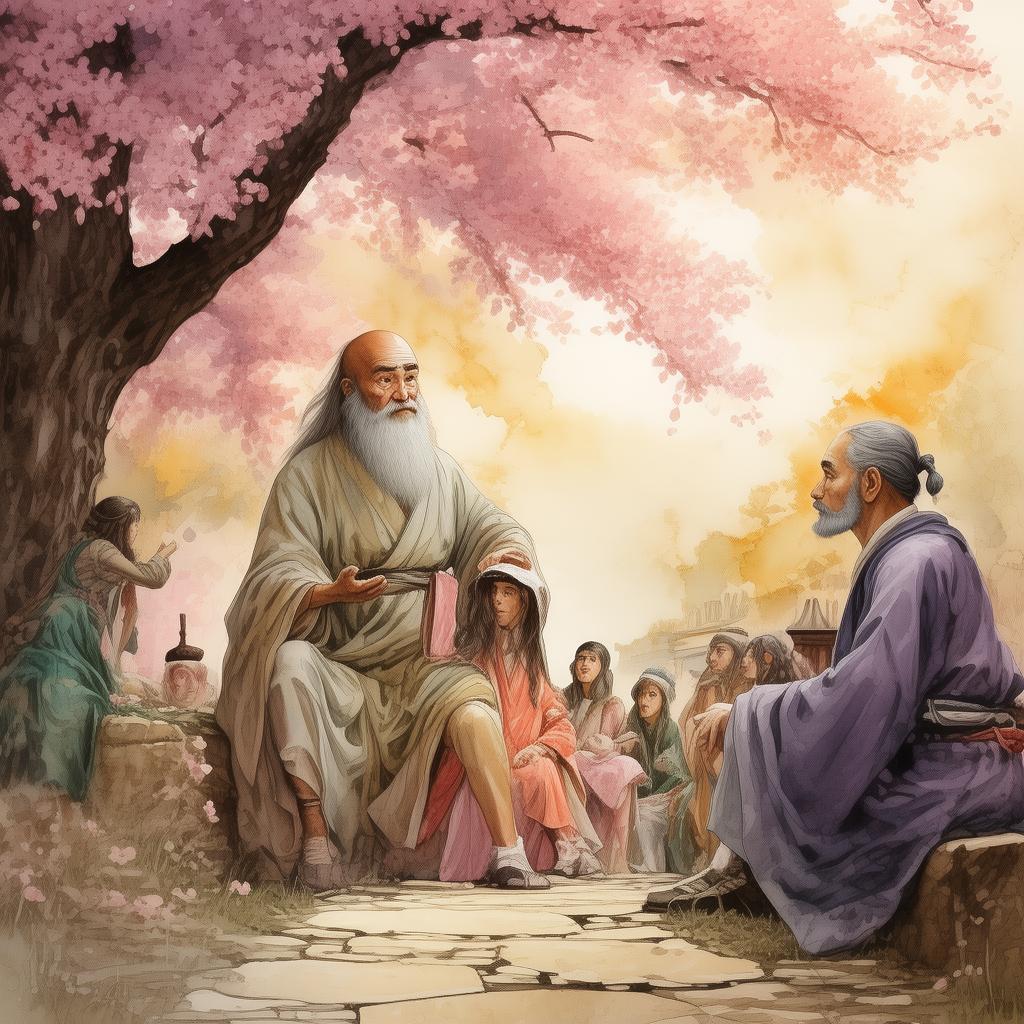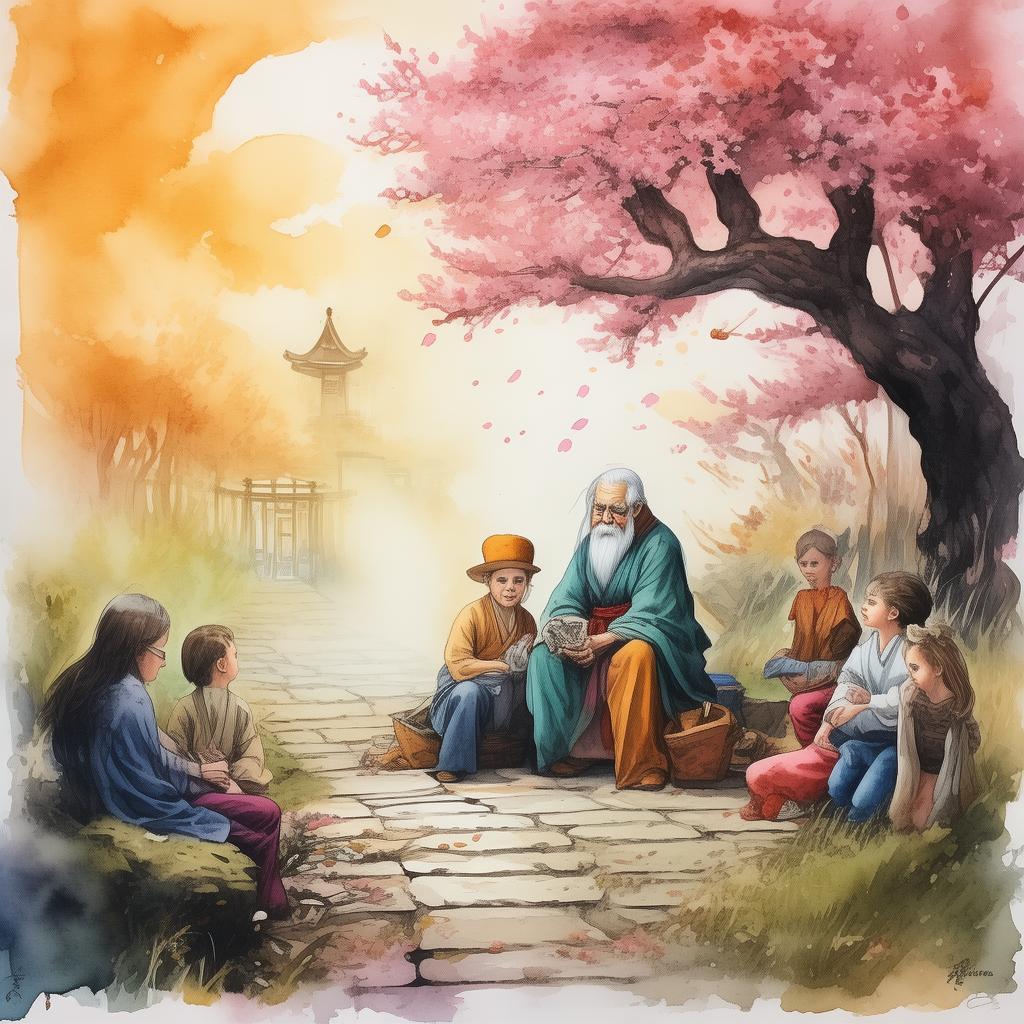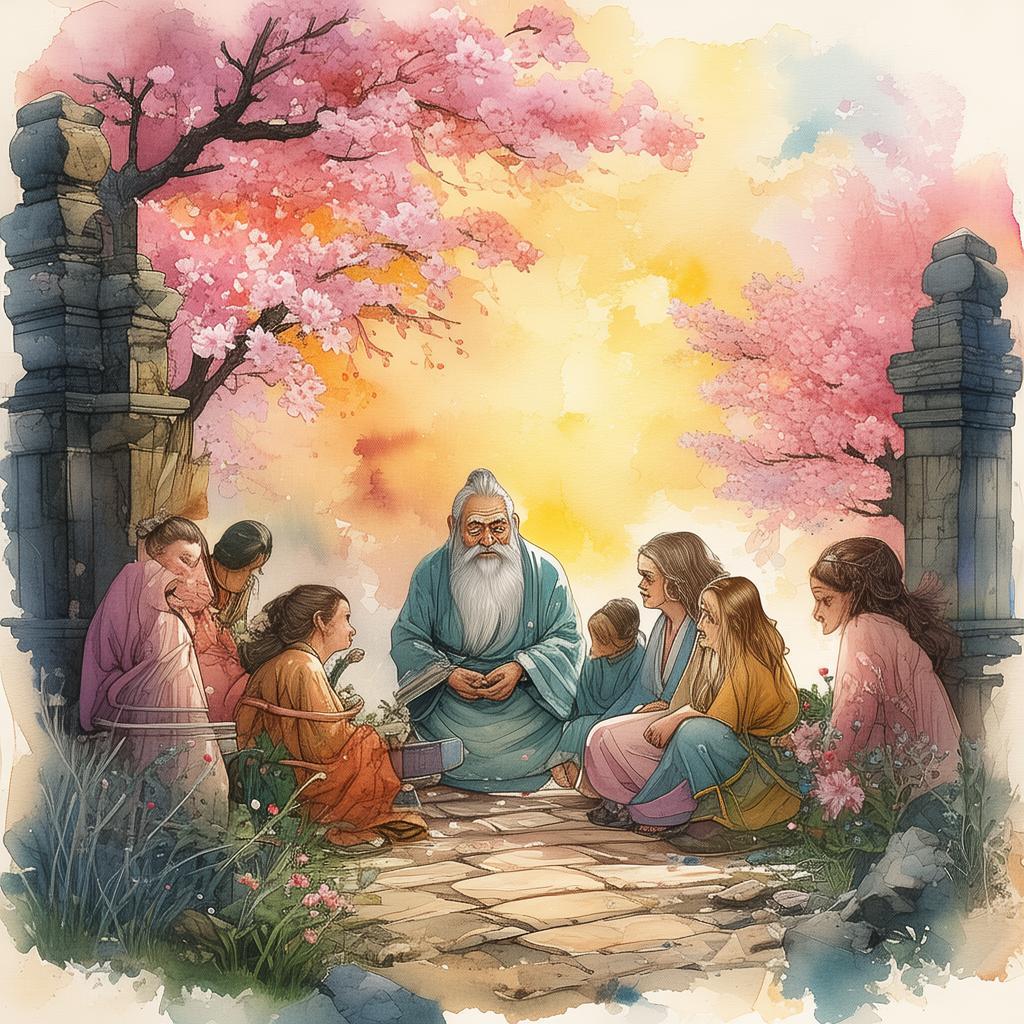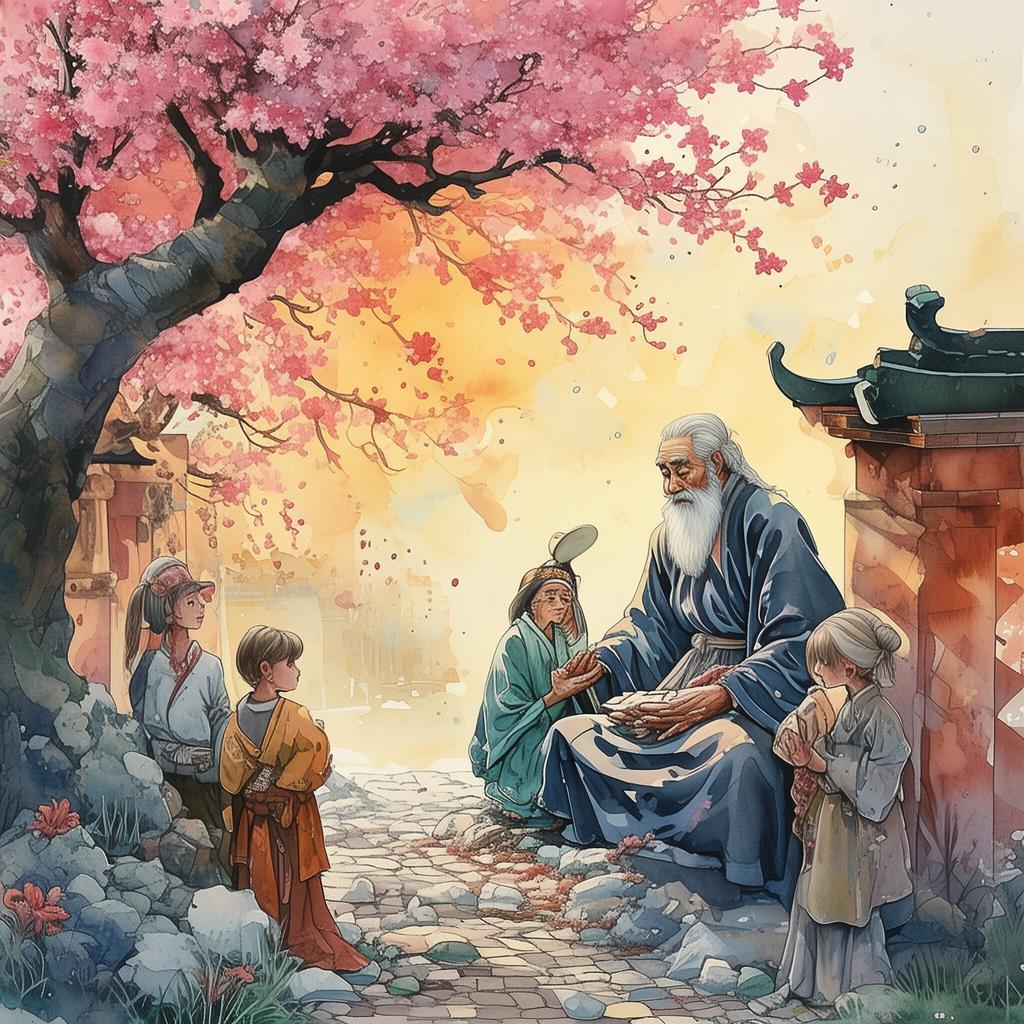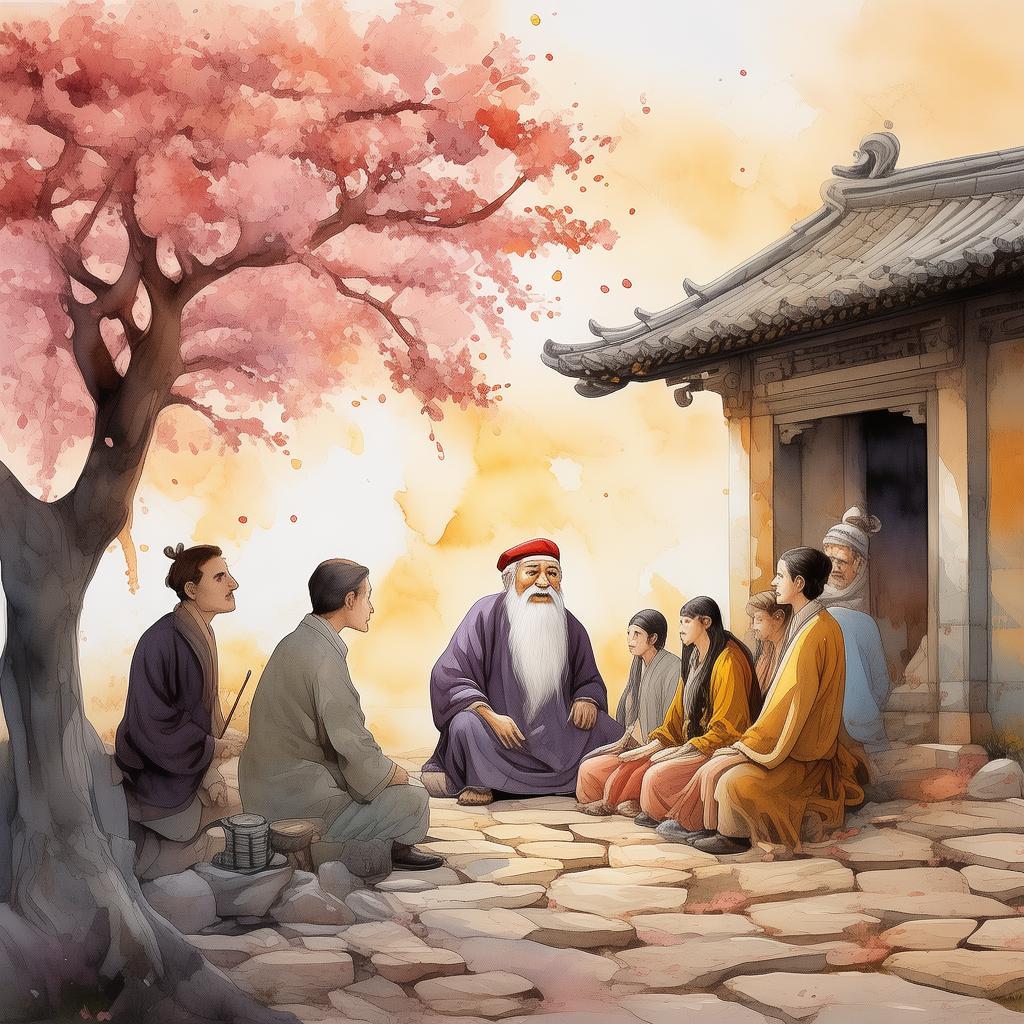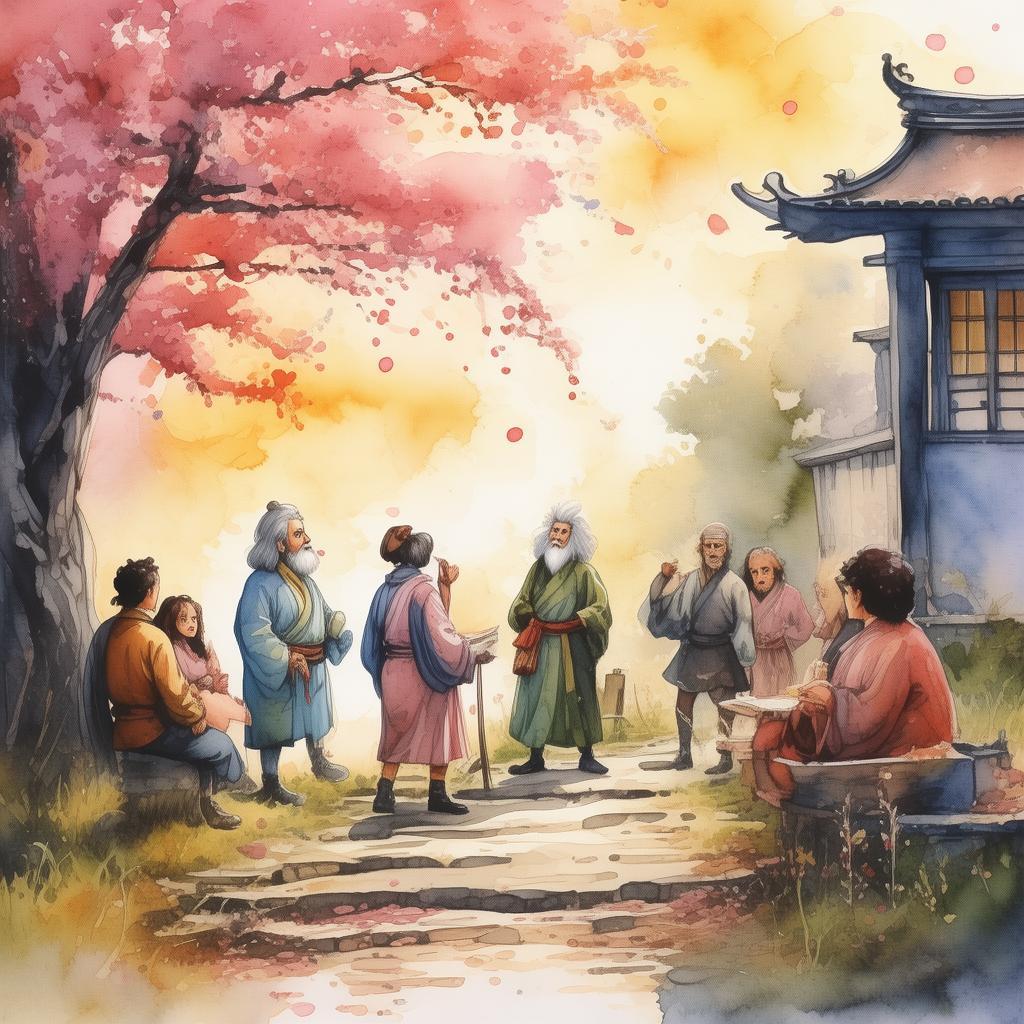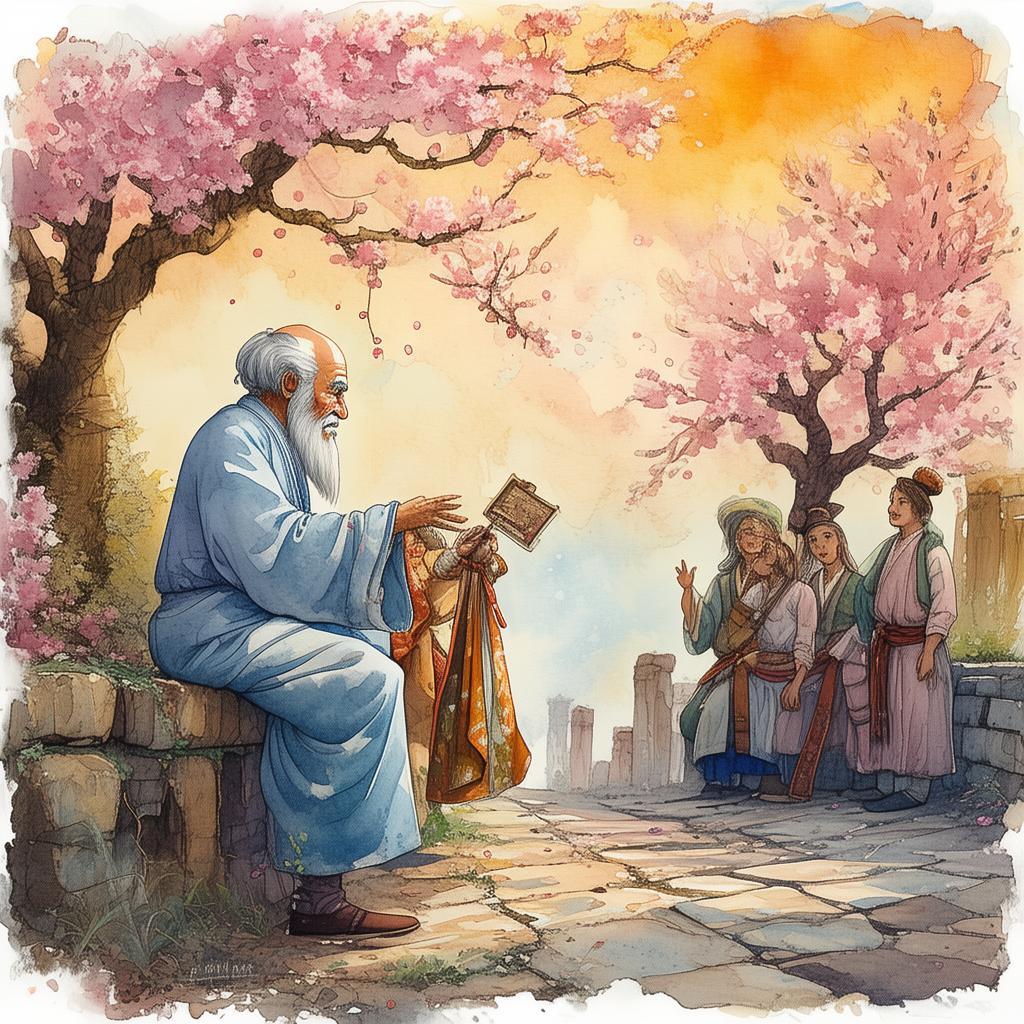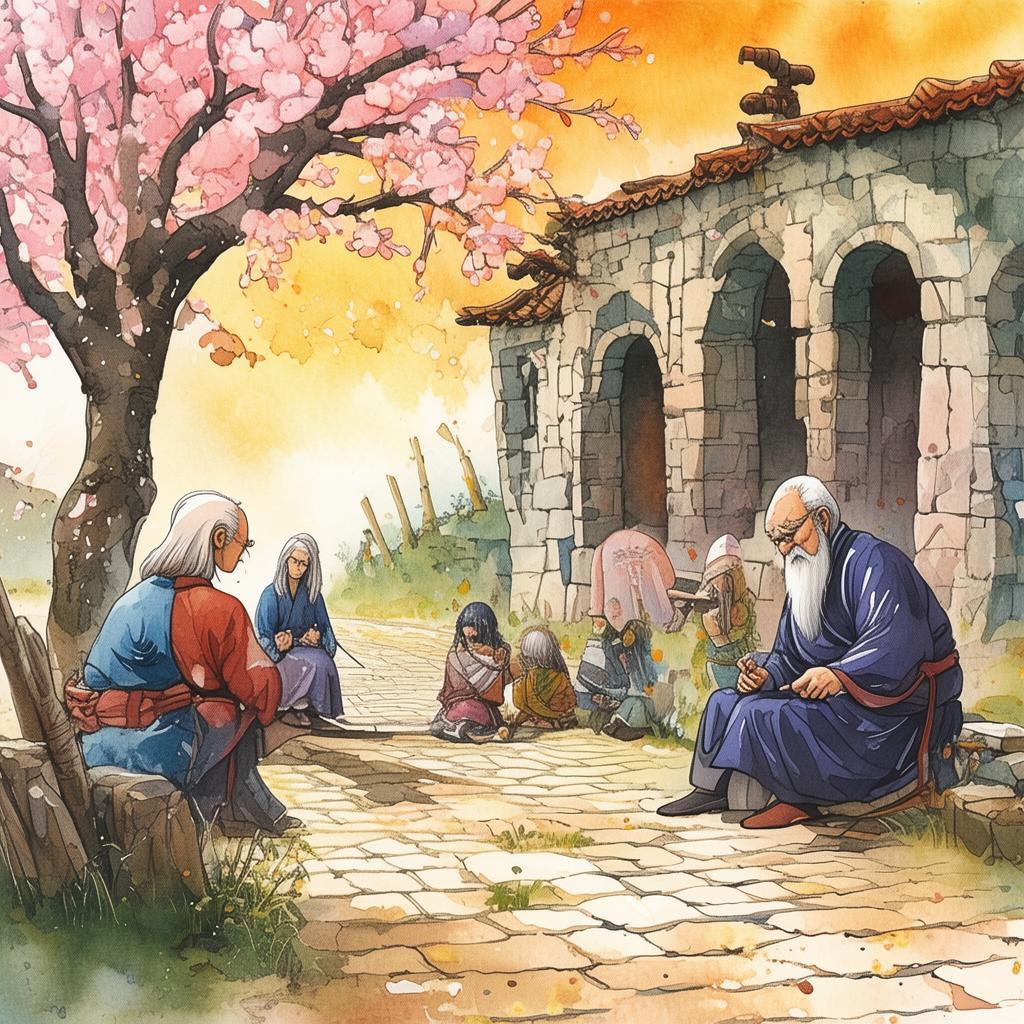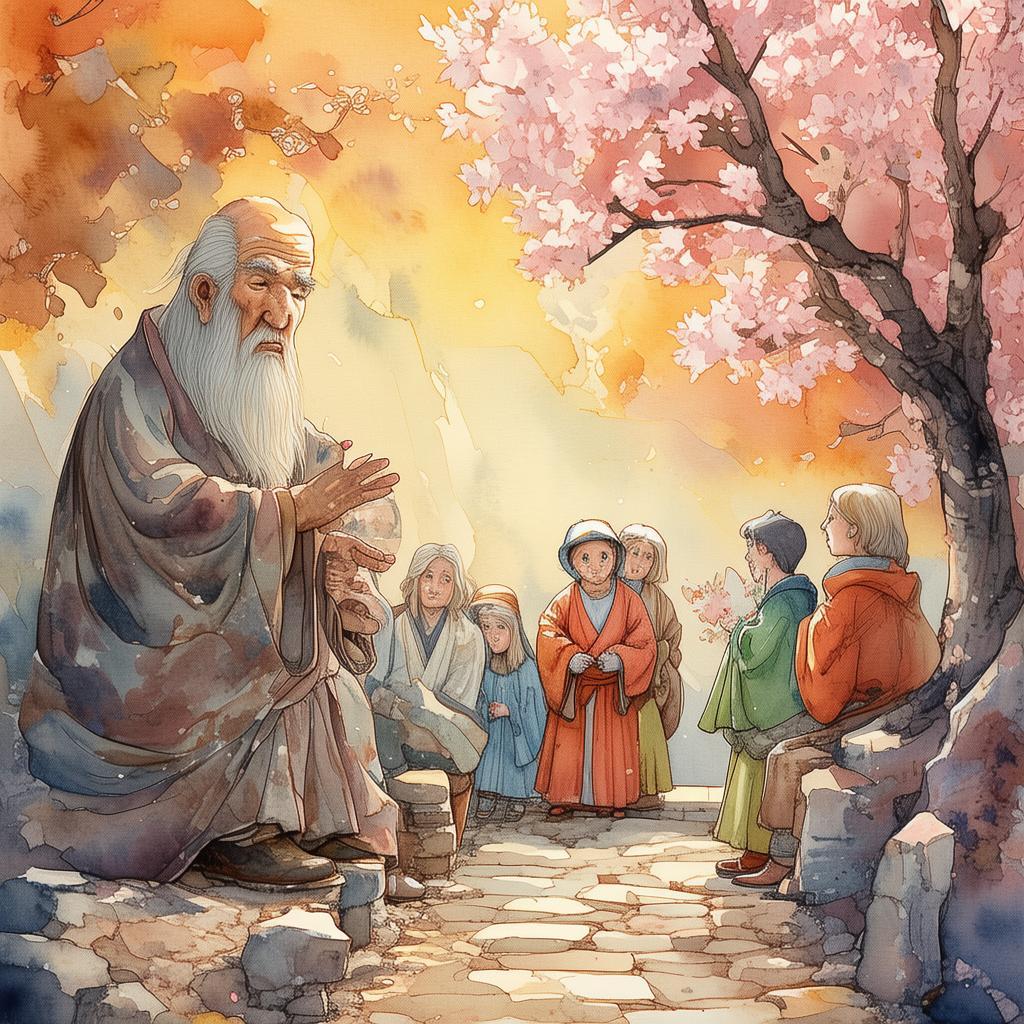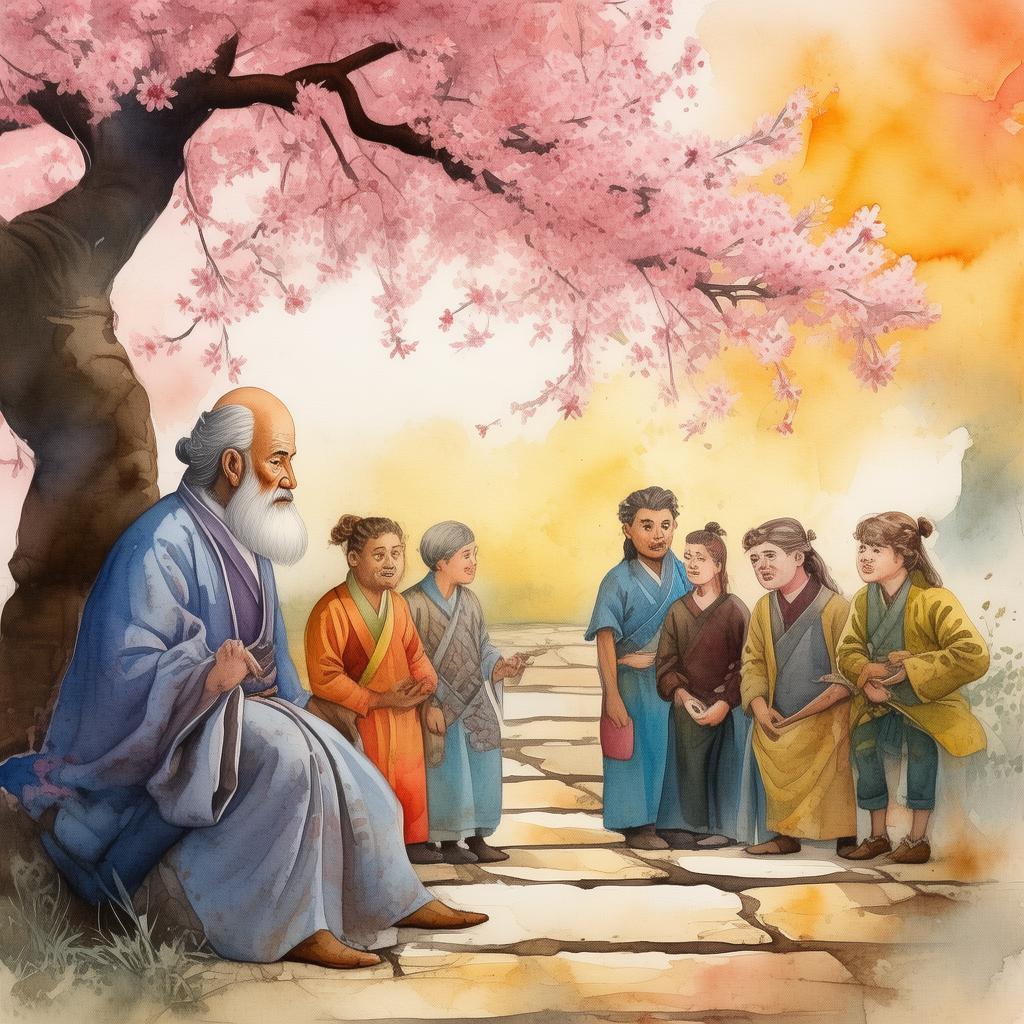The Quantum Leap of the Scholar's Dream
In the quaint town of Xinliu, there stood an ancient library, its walls lined with the wisdom of ages. Among the scholars who frequented its hallowed halls was a man named Mr. Wang, a revered philosopher known for his profound understanding of the cosmos. His name was whispered in reverence, and his teachings were sought after by the most brilliant minds of the realm.
One evening, as the sun dipped below the horizon, casting a golden hue over the library's facade, Mr. Wang found himself alone in his study. The air was thick with the scent of aged parchment and the soft hum of his thoughts. He had always been fascinated by the mysteries of the universe, the ways in which reality and perception intertwined, and the possibility of transcending the confines of time and space.
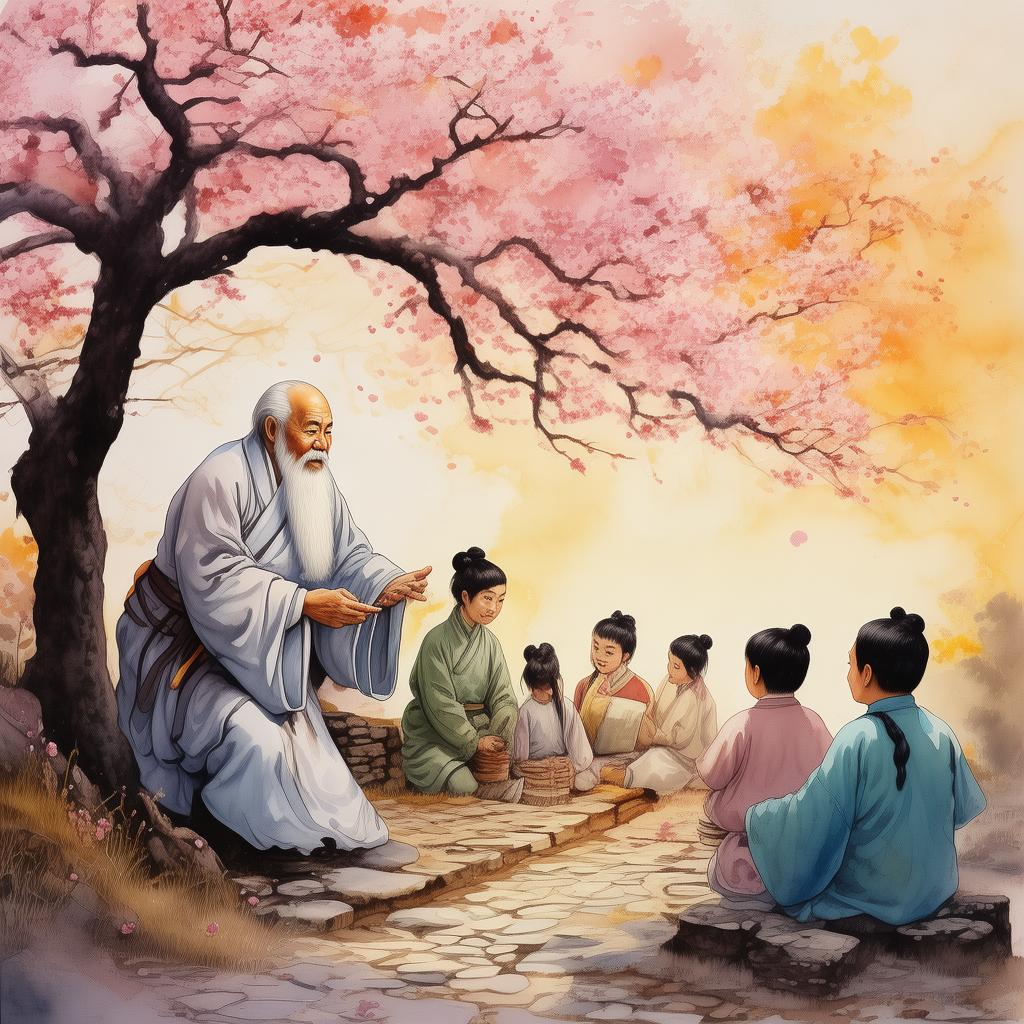
As he gazed out of his window, a dream came to him. He saw himself walking through a field of golden daisies, the flowers swaying gently in the wind. The sun was warm on his face, and the world seemed at peace. As he walked deeper into the field, he noticed a small, shimmering portal in the distance. Intrigued, he approached the portal, and to his astonishment, it began to glow, pulling him in with a force that defied explanation.
Inside the portal, Mr. Wang found himself in a realm unlike any other. The sky was a swirling tapestry of colors, the ground was a sea of floating islands, and the air was filled with the sounds of a thousand different worlds. He realized that this was the realm of quantum realms, where the laws of physics were as fluid as the clouds that floated above.
He wandered through this surreal landscape, marveling at the sights and sounds that surrounded him. He met beings of light, beings of shadow, and beings that were both. Each one shared a piece of knowledge with him, each one a puzzle piece to the grand mystery of existence.
As he continued his journey, Mr. Wang encountered a wise sage who spoke of the Paradox of Quantum Reality. The sage explained that in this realm, the act of observing an event could alter its outcome. The future was not a fixed point but a probabilistic tapestry, and the choices one made could lead to countless possible outcomes.
Inspired by the sage's words, Mr. Wang decided to test the bounds of his own reality. He reached into his pocket and pulled out a small, golden coin. He held it up to the light, observing it intently. In that moment, he saw the coin change from a coin to a star, from a star to a mountain, and from a mountain to a drop of water.
Realizing the power of his own observation, Mr. Wang decided to return to his own world. He knew that what he had learned in the quantum realms would change him forever. He understood that reality was not a fixed entity but a tapestry of probabilities, and that the power to shape his own destiny lay within his own hands.
When Mr. Wang awoke from his dream, he found himself back in his study, the golden coin still in his hand. He realized that the quantum realms were not just a dream but a reflection of the potential within himself. With this newfound understanding, he felt a sense of empowerment and a desire to share his knowledge with the world.
From that day forward, Mr. Wang's lectures were no longer about the theoretical aspects of the cosmos but about the practical applications of quantum reality. He taught his students that their thoughts and actions could shape their own futures, that the power to create their reality lay within their own grasp.
The story of Mr. Wang and his quantum leap became legendary in Xinliu. People would gather to hear him speak, to learn about the possibilities that lay within them. And as they listened, they too felt a sense of wonder and a desire to explore the quantum realms within their own minds.
The Quantum Leap of the Scholar's Dream became a symbol of the limitless potential that lay within each person. It was a reminder that the boundaries of reality were not fixed, and that the power to transcend them lay within the realm of one's own imagination.
✨ Original Statement ✨
All articles published on this website (including but not limited to text, images, videos, and other content) are original or authorized for reposting and are protected by relevant laws. Without the explicit written permission of this website, no individual or organization may copy, modify, repost, or use the content for commercial purposes.
If you need to quote or cooperate, please contact this site for authorization. We reserve the right to pursue legal responsibility for any unauthorized use.
Hereby declared.
